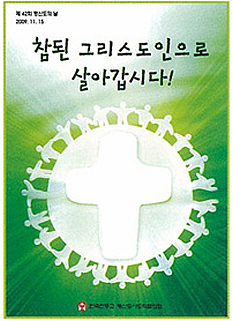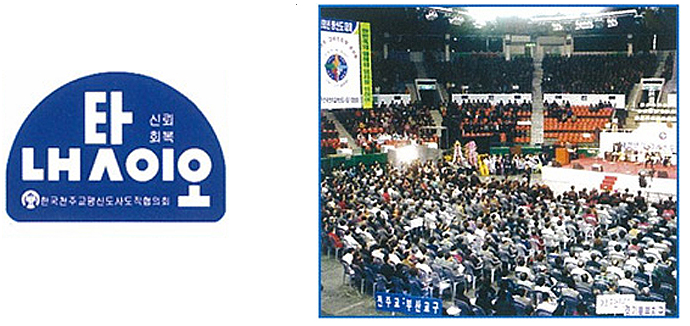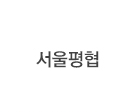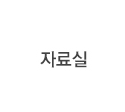Catholic Lay Apostolate Council
Catholic Lay Apostolate Council is an association organized to carry on the lay apostolate harmoniously. For the general support of the activities of the laity, which was highly-elated after the Second Vatican Council, Pontifical Council for the Laity was established at the Vatican, and al in Korea, the Catholic Lay Apostolate Council of Korea and that of each diocese have been set up, while in each parish, there is a lay pastoral council and various ecclesial movements and functional associations are in activity at parochial, diocesan and national level.
Foundation of the Catholic Lay Apostolate Council of Korea and the beginning of Laity Sunday in Korea
After the Second Vatican Council (1962-1965), in accordance with its spirit and teachings, especially with the emerging importance of the role of laity and that of lay apostolate both in the church and in society, the Korean Catholic Central Council for the Lay Apostolate was founded on July 23, 1968 at national level to revitalize the lay apostolate, and from October 14, 1976, it has been called the Catholic Lay Apostolate Council of Korea until now.
The Catholic Bishops' Conference of Korea established "Laity Day" along with the foundation of the Korean Catholic Central Council for the Lay Apostolate, and later, renamed it "Laity Sunday", changing in liturgical calendar from the 1st Sunday of Advent to the penultimate Sunday of Ordinary Time. In this Sunday, it is recommended that a lay person should deliver a homily during the mass in every parish where the second offerings will be collected and sent to the Catholic Lay Apostolate Council of Korea and to the diocese in order to support and sponsor the lay apostolate activities.
The Catholic Bishops' Conference of Korea established "Laity Day" along with the foundation of the Korean Catholic Central Council for the Lay Apostolate, and later, renamed it "Laity Sunday", changing in liturgical calendar from the 1st Sunday of Advent to the penultimate Sunday of Ordinary Time. In this Sunday, it is recommended that a lay person should deliver a homily during the mass in every parish where the second offerings will be collected and sent to the Catholic Lay Apostolate Council of Korea and to the diocese in order to support and sponsor the lay apostolate activities.

Main activities of the Catholic Lay Apostolate Council of Korea
- The exchange of information and the reinforcement of relationship among its members.
- Collecting research materials about Lay Apostolate and the research of them.
- Preparing the homily materials for Laity Sunday and the distribution of it.
- The cooperation for the reeducation of the laity
- The research for methods for evangelization of the Korean people, programming of mission work, suggestions and publications.
- Mutual exchange with other international associations and organizations of Lay Apostolate
Past Achievements of the Catholic Lay Apostolate Council of Korea
In the mid-1970s, the Catholic Lay Apostolate Council of Korea
- began the campaign for the canonization of the Blessed Andrew Kim, Dae Keon, the first Korean priest, and for the beatification of the early Korean catholic martyrs and it has gained the glorious result, when Pope John Paul II, directly celebrated in Seoul, Korea, the mass for the canonization of 103 Korean martyrs and for the bicentennial of the foundation of the Korean catholic church.
- conducted the anti-corruption movement in the Korean society
- promoted the reeducation of the laity by studying the spirit of the Second Vatican Council and its documents, along with the dissemination of the ecclesial periodicals.
- In the 1980s, when there was the military regime in Korea, it urged the press to acknowledge and stop their biased reports, along with the boycott on the TV subscription fee for KBS, Korean Broadcasting System.
- did the campaign for a sister-parish affiliation between cities, provinces and country side, promoting a closer friendship among the lay apostolate councils of various diocese.
- and with the initiative of the Catholic Lay Apostolate Council of the archdiocese of Seoul, it participated actively in the preparations and the success of the event of the foundation of the 150th anniversary of the first diocese of Korea in 1981 the bicentennial of the foundation of the Korean catholic church and the canonization of 103 Korean martyrs in 1984 the 44th World Eucharistic Congress of Seoul in 1989 etc. and it contributed much to their success.
- In 1983, the Catholic Lay Apostolate Council of Korea, through its social service program supervised and began a campaign to restore confidence (Restore Trust Movement) among citizens in the Korean society and established the Catholic Grand Award in 3 fields (Love, Culture, and Justice) and has been discovering and awarding every year, those who have contributed. From 1989, this "Restore Trust Movement" has become "My Fault Movement". Afterwards the "Be decent movement" for moral recovery has renewed the zeal of restoring trust. The implementation of the campaign "Beautiful family, beautiful world" has begun.
- In 2000, promising to become "Christ's witnesses for the new millennium", the "Jubilee Year Lay Congress" was held with the Korean Council of the Laity as host and the Seoul Archdiocese Council of the Laity as organizer the Church's social teachings, that is, pledging to take the lead in practicing the Church's social doctrine.
- At present, a course on the Council at the school for the Laity, choir groups, our hymns, lyrics and composition contests, putting into practice the Church's social doctrines, national reconciliation and evangelization of the family: these various programs help the apostolic activities of the faithful especially inside the church, the communion among the lay, the clergy, the religious shows the image of the Church as communion being realized.

In the Church Communion
Its fundamental meaning speaks of the union with God brought about by Jesus Christ, in the Holy Spirit. The opportunity for such communion is present in the Word of God and in the Sacraments. Baptism is the door and the foundation of communion in the Church. The Eucharist is the source and summit of the whole Christian life (cf. Lumen Gentium, 11). The Body of Christ in the Holy Eucharist sacramentalizes this communion, that is, it is a sign and actually brings about the intimate bonds of communion among all the faithful in the Body of Christ which is the Church (Christifideles Laici, 19)
Apostolatus laicus / Lay Apostolate
The call to be a believer in Christ, substantially is a call to apostolate. The laity with the Christian spirit becomes leaven in the world and to accomplish this received a call from God. This is the apostolate that is bestowed on the laity. The Church was founded for the purpose of spreading the kingdom of Christ throughout the earth for the glory of God the Father, to enable all men to share in His saving redemption,(1) and that through them the whole world might enter into a relationship with Christ. All activity of the Mystical Body directed to the attainment of this goal is called the apostolate, which the Church carries on in various ways through all her members. (DECREE ON THE APOSTOLATE OFTHE LAITY APOSTOLICAM ACTUOSITATEM Article 2) They live in the world, that is, in each and in all of the secular professions and occupations. They live in the ordinary circumstances of family and social life, . In this way they may make Christ known to others, especially by the testimony of a life resplendent in faith, hope and charity. (Lumen Gentium 31) The laity are in their own way made sharers in the priestly, prophetical, and kingly functions of Christ; all their works, prayers, and daily life are offered spiritually, exerting efforts for the sanctification of man, becoming witnesses of Christ so that the power of the Gospel may come to light, that the spirit of the Gospel may penetrate this present world, and with humility and patience guide his brothers to Christ.
The Korean Catholic Church and the Laity
The Catholic Church in Korea started in the latter part of the 18th century. God, who wants the redemption of all peoples, in a mysterious way, place the seed of faith in this land and made it grow and blossom. Korean scholars studied catechism spontaneously , and one of them went to a catholic church in Beijing and with the name of Pedro received baptism in 1784 and upon his return formed a community. In an unprecedented way in the world, the church in Korea, the laity as a community received the faith by themselves in a distinguishing manner.
Because of their faith in God, the Korean faithful since the early beginnings were persecuted, outcasted from their families, lost their social status, possessions, even the minimum human rights were taken away, notwithstanding all sorts of sufferings there was a steady growth of the church. The Korean church started without a shepherd, though for a short period they had two Chinese priests, and until the arrival of the French missionaries in 1836, for 40 years only the laity as a community lived keeping the commandments.
Moving efforts and sacrifices of the laity to invite missionaries, was followed by a century of severe persecution to the progressing Korean catholic church, which saw 10,000 martyrs, of whom there are now 103 martyrs saint, of which 92 saints are lay . Aside from these, there are now 125 martyrs and testimonies who are "servants of God" of which the process for beatification is on course, and the majority of which are lay persons.
Because of their faith in God, the Korean faithful since the early beginnings were persecuted, outcasted from their families, lost their social status, possessions, even the minimum human rights were taken away, notwithstanding all sorts of sufferings there was a steady growth of the church. The Korean church started without a shepherd, though for a short period they had two Chinese priests, and until the arrival of the French missionaries in 1836, for 40 years only the laity as a community lived keeping the commandments.
Moving efforts and sacrifices of the laity to invite missionaries, was followed by a century of severe persecution to the progressing Korean catholic church, which saw 10,000 martyrs, of whom there are now 103 martyrs saint, of which 92 saints are lay . Aside from these, there are now 125 martyrs and testimonies who are "servants of God" of which the process for beatification is on course, and the majority of which are lay persons.







